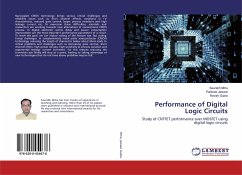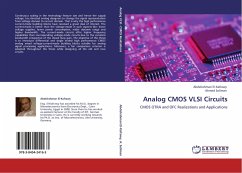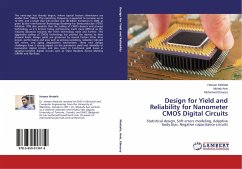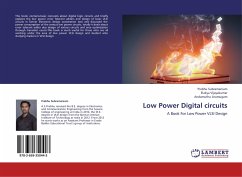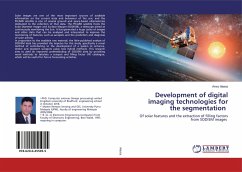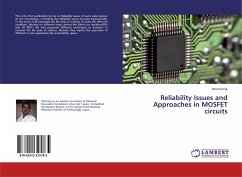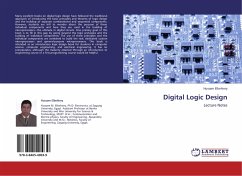
CMOS for Digital VLSI Circuits
Versandkostenfrei!
Versandfertig in 1-2 Wochen
40,99 €
inkl. MwSt.

PAYBACK Punkte
20 °P sammeln!
"CMOS for Digital VLSI Circuits" is a comprehensive book that delves into the core concepts of Complementary Metal-Oxide-Semiconductor (CMOS) technology in digital VLSI circuits. The book commences with a thorough recapitulation of MOS, covering transistor basics, operating regions, and modes of operation. It explores MOS capacitances, long-channel, and short-channel transistor models. Chapter 3 focuses on CMOS inverter characteristics, presenting an in-depth analysis of its structure, voltage transfer characteristic (VTC), noise margins, and propagation delay. Chapter 4 delves into various CM...
"CMOS for Digital VLSI Circuits" is a comprehensive book that delves into the core concepts of Complementary Metal-Oxide-Semiconductor (CMOS) technology in digital VLSI circuits. The book commences with a thorough recapitulation of MOS, covering transistor basics, operating regions, and modes of operation. It explores MOS capacitances, long-channel, and short-channel transistor models. Chapter 3 focuses on CMOS inverter characteristics, presenting an in-depth analysis of its structure, voltage transfer characteristic (VTC), noise margins, and propagation delay. Chapter 4 delves into various CMOS logic circuits, including NAND, NOR, and complex logic gates, along with a detailed design of a CMOS full adder. Chapter 5 introduces CMOS transmission gates and their applications, including transmission gate-based multiplexers. The subsequent chapters cover advanced CMOS logic circuits, such as pass-transistor logic, domino logic, and dynamic logic. Chapters 7 and 8 delve into sequential logic and power dissipation in CMOS circuits, respectively. The former includes clocked JK latch, master-slave JK flip-flop, D-latch, and edge-triggered flip-flops.




